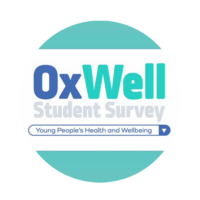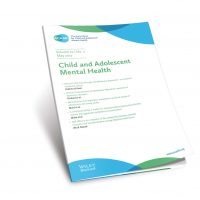school-based interventions
-

Friendships and Mental Health: Insights from the OxWell Student Survey
The ‘Insights from the OxWell Student Survey‘ series is a new mini-in conversation series that will explore the OxWell study and the impact of its findings for parents, teachers, policymakers and mental health professionals.
In this episode, Tanya Manchanda comments on the friendship findings from the OxWell survey, including an insight into the impact of friendships on mental health outcomes and friendship interventions for young people.
Read more -

Redistributing power in schools and how this can impact young people’s agency and identity
Recent Guardian articles have been reporting how this year’s GCSE exam results have been impacted by the crisis in young people’s mental health. There is increasing concern among school leaders about school absence and abnormal levels of anxiety. As I embark on the third blog related to my research, I explore how the research processes I developed, positively impacted the young people involved and acts as a counter to much of what young people see as being wrong with schools.
Read more -

Short Research Article: RESEED – the perceived impact of an enhanced usual care model of a novel, teacher-led, task-shifting initiative for child mental health
Paper from the CAMH journal – ‘We explore the perceived impact of RESEED (Responding to Students’ Emotions through Education), an abbreviated version of Tealeaf (Teachers Leading the Frontlines). After classroom implementation of tools from a 3-day training on child mental health and cognitive behavioral techniques in Darjeeling, India, 29 teachers participated in focus group discussions (FGDs).’ Setareh Ekhteraei (pic) et al.
Read more -

4STMF (Four Steps To My Future): acceptability, feasibility and exploratory outcomes of a universal school-based mental health and well-being programme, delivered to young adolescents in South Africa
Open Access paper from the CAMH journal – ‘Mental health disorders affect many children in South Africa, where vulnerability is high, and treatment is limited. We sought to determine the feasibility and acceptability of a universally delivered classroom-based programme for the promotion of mental health in young adolescents.’ Bronwynè Coetzee (pic) et al.
Read more -

Anxiety in children and teenagers – supporting, understanding and signposting (recording)
Delegates ONLY. In this event, we explore what anxiety looks like in young people, suggest some practical tips for recognising and supporting anxious children and adolescents, hear about anxiety relating to exams, and learn more about what we know from research about the causes of anxiety. Recordings available for 90 days.
Read more -

Developing schools to enhance young people’s mental health
Research has shown that many risk factors influence young people’s mental health needs, one of which is school expectations. The youth mental health crisis continues, with one in six young people (aged 6-16) having a probable mental health problem. My research aimed to determine what young people thought of their mental health strategy. However, the way in which the research process developed suggests schools have much more to offer than just specific mental health support.
Read more -

Editorial Perspective: Missing the context: The challenge of social inequalities to school-based mental health interventions
Open Access paper from JCPP Advances – ‘We describe how social inequalities present a challenge to designing school-based interventions for prevention and promotion for mental health and wellbeing, and suggest priorities to aid and evaluate their effectiveness’. Karen L. Mansfield (pic) et al.
Read more -

Associations between Dimensions of Mental Health Literacy and Adolescent Help-seeking Intentions
In this Papers Podcast, research associate Dr. Claire Goodfellow discusses her CAMH paper ‘Associations between dimensions of mental health literacy and adolescent help-seeking intentions’. Claire is the first author of the paper.
Read more -

Review: School-based mental health literacy interventions to promote help-seeking – a systematic review
Open Access paper from the CAMH journal – “The aim of this review is to identify and synthesise evidence on the effectiveness of school-based mental health literacy interventions in improving help-seeking outcomes”. Karen Kei Yan Ma et al.
Read more -

Adverse Childhood Experiences for schools – a MindEd e-learning Training (recording)
This free session was the second of ACAMH’s Adverse Childhood Experiences (ACEs) Special Interest Group Monthly seminars. In this session we discussed ‘Adverse Childhood Experiences for schools – a MindEd e-learning Training’.
Read more